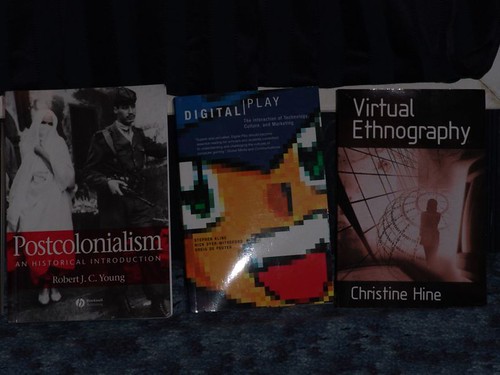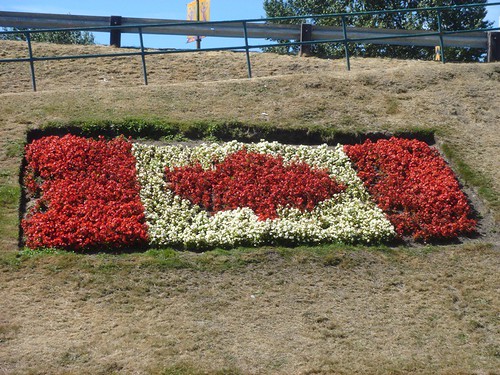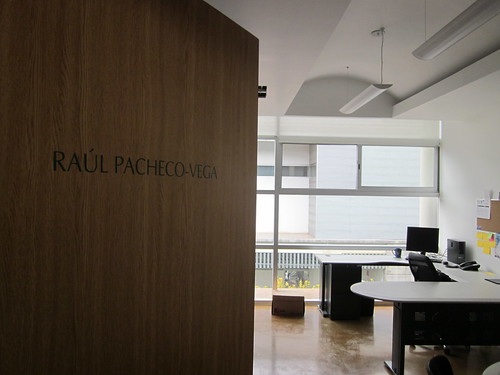When I announced publicly that I had left UBC Political Science to take up a position at CIDE Region Centro, I received some of the most amazing and positive feedback. Everyone who knew me at UBC (either because they were my colleagues, or because they took a course with me, or because they heard great things about my teaching and my courses) felt sad that I was leaving UBC but happy for me in my new position.
I will fully admit to feeling incredibly torn, particularly because I promised a number of my former students (and numerous would-be students) that they would get another chance at taking a course with me (either because they wanted to earn the famous “I Survived X Courses With Dr. Pacheco-Vega” diploma, or simply because they enjoyed my teaching style). On the topic of the Pacheco-Vega course survival diploma, all of you who earned it, I have it with me, so I’ll give it to you next time I’m in Vancouver, or I will mail it to you, gladly.
I felt torn because on the one hand, I wanted to take up this amazing position (and at the same time, be physically and geographically closer to my parents), but on the other hand, I did not want to leave my students behind. I would have paid good money to be able to clone myself just so that those students I promised they’d be able to take another course with me would be able to do so.
Thus, in the spirit of the back-to-school day, here are some pieces of advice I give my students every beginning of the year, in one way or another.
1. Work hard. All the time. This piece of advice seems kind of ridiculous, since we are talking about undergraduate students at one of the most prestigious universities in Canada, but it has been my experience that when the pressures of work (most of my undergraduate students at UBC worked part- or full-time to pay for their own studies) and extracurricular commitments, school work often takes a second seat. Don’t do that. We (professors) will notice you are slacking and we will not appreciate it. Particularly if (like me) we put in so much work into our teaching.
2. Remember you’re human. Take time off. This would sound a bit contradictory since I just told you to work hard. But as the saying goes, “no play makes Jack/Jill dull”. It’s so true. Take time off. Go for a walk. Sit down and enjoy the (rather non-existent for most of the year, in Vancouver) sunshine.
3. Talk to your professors. We are here for you. REALLY. Some people (including a couple of students) criticized me for my personal approach to teaching. I often reminded my students that I, too, was human and that I understood when they were facing challenges, because *I* had been facing challenges in the past three years too. But I always felt validated when students of mine would approach me to ask for my opinion, or mentorship, even when it meant that they needed to open up about some very personal stuff. I felt privileged that they would approach me for advice, and I did the best I could to help. I am sure that most of my fellow faculty members, while incredibly busy, will always understand that life happens and you should be prepared to talk to your professors and be honest when you are struggling. There is an entire system built around helping you succeed. And our goal, as your professors (mine, most certainly!) is to help you succeed.
4. Take courses you find relevant/interesting/useful, not courses you need to earn the 3 credits or boost your grades. I always joked with my students on the first day of class that I completely understood if they took my courses because they needed the 3 credits. I made them work incredibly hard, and they realized after the fact that they were in fact learning, a lot, about public policy (and/or environmental politics). Take the courses you think will put you in a better position to face working life after graduation.
5. Use your courses to build your skills. My courses are, for the most part, very applied. Public Policy taught my students how to undertake policy analysis, and I made them do applied research and write policy-analytical memos. By providing them with opportunities to take on real-world problems and tackle them in the safe environment of a classroom, I was able to enhance their self-confidence in their abilities to write stuff that policy makers would want to read. You can do the same: use every course (whether it’s theory, or methods) to enhance the skills that you will need come graduation. I always say to my students that I teach them employable skills, and for the most part, I think they realize that this is the case.
6. Get involved in student life. I have been lucky to have amongst my students former Presidents of the Alma Mater Society, VicePresidents of AMS, Presidents of the Arts Undergraduate Society, and many other participants in student life. This is one of the things that will enrich both your life and your resume. Make sure you participate in committees/student groups where you can see yourself working as a professional. This will enable you to build great skills towards the future.
7. Learn to work in groups. That IS how we work in postgraduation life. Some of my students were dismayed to find that I required of them to work in teams. After all, there’s always the fear of someone not picking up their own weight and work together. But I think for the most part, my students have always been able to work together and some of them have built long-lasting friendships after those team projects. And that’s how real life works: we work in teams, we don’t work alone (even us, academics!).
8. Network, network, network. I will fully admit that the minute I learned that over 45% of the Spaniard youth (18-25) is unemployed, according to a Spaniard professor I chatted with on the bus as I was heading to the university a couple of years ago, I freaked out. I have had hundreds of students in my years at UBC and elsewhere, and I always have taught courses that build employable/hireable skills. And I maintain a close connection with my former students as many of them approach me to write them letters of reference, so I have my fingers on the pulse of how the job market is. And I know it’s tough. So, whenever given an opportunity, NETWORK! Talk to guest lecturers in courses, participate in seminars, lectures and open events, conferences, etc. Always make sure to introduce yourself, and carry business cards (even if you are still an undergraduate, it never hurts to present a professional appearance).
On that note, and this is very much for my former students, both graduated and still at UBC: remember I’m always only as far away as a tweet, a Facebook wall post, or an email. I may not be in Vancouver physically, but I will *always* be your professor, and you can always count on me if you need me.
Enjoy your first day back to school for the 2012-2013 academic year!
I began teaching at UBC in 2006, although I took a little break around 2008. When I came back to teach at The University of British Columbia a few years ago (I teach in the department of Political Science, at the undergraduate level), a whole new world re-opened. Not teaching for a little while, I had completely forgotten how fulfilling teaching is for me. I teach not because I *have* to but because I love it.











Recent Comments